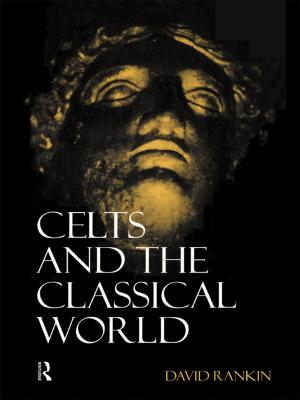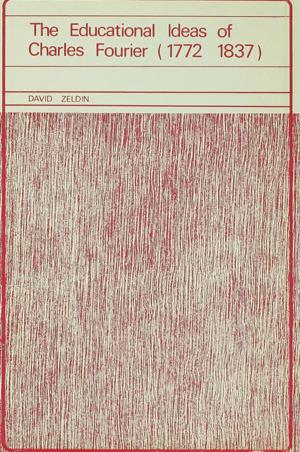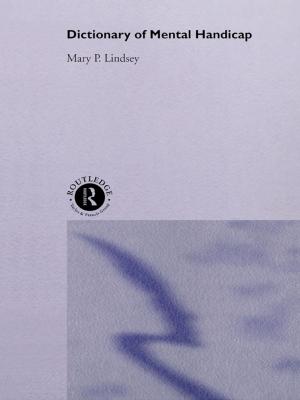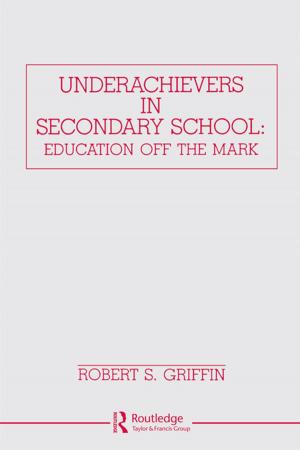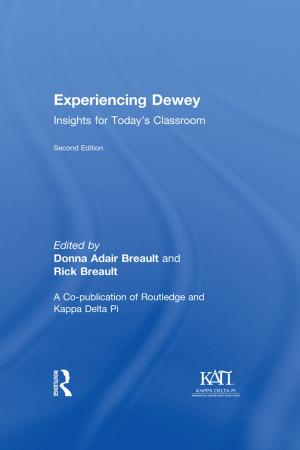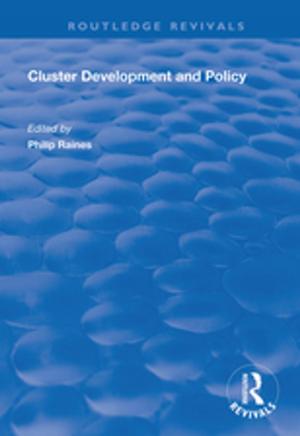Envisioning the Dream Through Art and Science
Nonfiction, Health & Well Being, Psychology, Mental Health| Author: | Robert G. Kuzendorf, James Veatch | ISBN: | 9781351868907 |
| Publisher: | Taylor and Francis | Publication: | November 3, 2016 |
| Imprint: | Routledge | Language: | English |
| Author: | Robert G. Kuzendorf, James Veatch |
| ISBN: | 9781351868907 |
| Publisher: | Taylor and Francis |
| Publication: | November 3, 2016 |
| Imprint: | Routledge |
| Language: | English |
This monograph is the product of an interdisciplinary experiment--an artistic experiment and a psychological experiment--focused on dreams. Inspired by the prevalence of dream imagery and "dream logic" in surrealist art, the authors asked 100 art students to create digital images representing critical scenes from one of their dreams, then to create a surrealist collage from the digital images. The resulting collages tend to capture the surreality envisioned in actual works of surrealist art, as two collages included in the book illustrate. Inspired also by the psychological problem of studying other minds, the authors asked the 100 art students to describe their dream in writing, to interpret their dream, and to complete two personality measures: the Short Form of the Boundary Questionnaire and the Brief Symptom Inventory. The art students' scores on particular personality scales were found to be statistically associated with particular dream aspects, many of which are visually observable in the digitized dream images created by art students with particular personalities but are not verbally discernible in the dream descriptions written by those same students. The appendix contains, for each art student, the digitally imaged dream, the written description and written interpretation of the dream, and scores on the Boundary Questionnaire and on the depression, anxiety, hostility, and somatization scales of the Brief Symptom Inventory. The book concludes with a bibliography and an index to some of the visual elements in the 100 digitized dream images.
This monograph is the product of an interdisciplinary experiment--an artistic experiment and a psychological experiment--focused on dreams. Inspired by the prevalence of dream imagery and "dream logic" in surrealist art, the authors asked 100 art students to create digital images representing critical scenes from one of their dreams, then to create a surrealist collage from the digital images. The resulting collages tend to capture the surreality envisioned in actual works of surrealist art, as two collages included in the book illustrate. Inspired also by the psychological problem of studying other minds, the authors asked the 100 art students to describe their dream in writing, to interpret their dream, and to complete two personality measures: the Short Form of the Boundary Questionnaire and the Brief Symptom Inventory. The art students' scores on particular personality scales were found to be statistically associated with particular dream aspects, many of which are visually observable in the digitized dream images created by art students with particular personalities but are not verbally discernible in the dream descriptions written by those same students. The appendix contains, for each art student, the digitally imaged dream, the written description and written interpretation of the dream, and scores on the Boundary Questionnaire and on the depression, anxiety, hostility, and somatization scales of the Brief Symptom Inventory. The book concludes with a bibliography and an index to some of the visual elements in the 100 digitized dream images.


